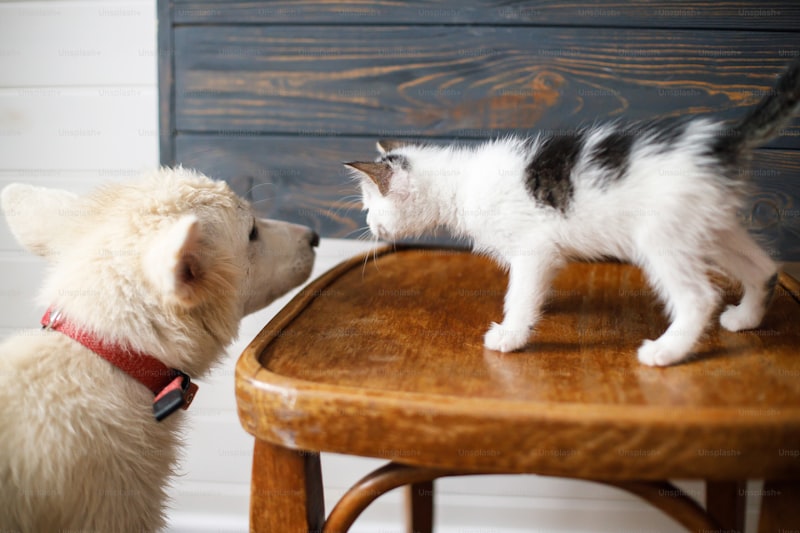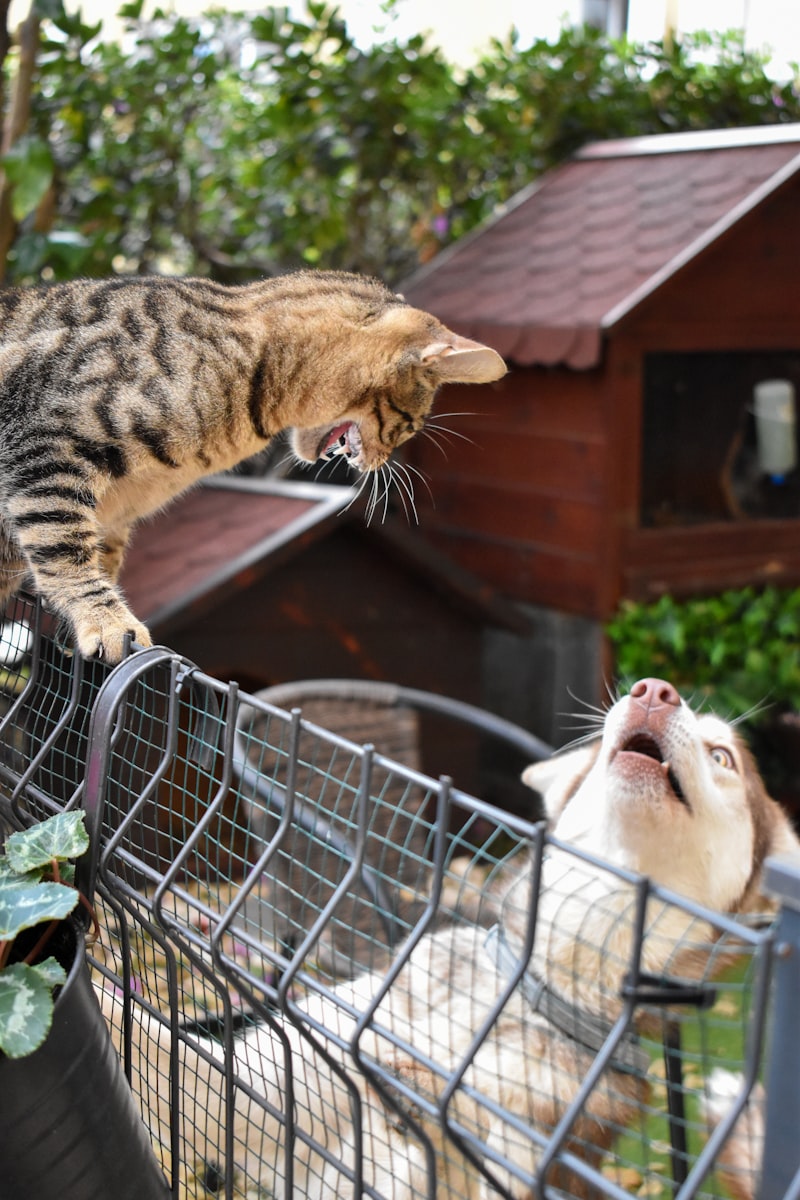First things first, you’ll want to start by picking the right tools. Cat-specific toothbrushes and toothpaste are essential because human products can be harmful to their tummies. It’s like trying to use a fork to eat soup—you need the right equipment! Start with a finger brush or a soft-bristled toothbrush for a gentler approach.

Next, get your cat accustomed to having their mouth touched. Gently lift their lip and expose those pearly whites while giving them plenty of praise. Think of it as a little bonding moment! You wouldn’t shove a toothbrush in someone’s mouth without some warm-up, right?
Now comes the fun part—applying the toothpaste! Just a dab will do. Allow your feline friend to sniff and taste it first. Hopefully, they’ll love the flavor so much they’ll forget they’re at a dentist appointment!
It’s brushing time! Using gentle, circular motions, brush a few teeth at a time. Focus on the outer surfaces where plaque tends to build up. Keep it short and sweet—aim for about 30 seconds! If your cat squirms, don’t force it. Just like us, they need time to adjust to the routine.
Purr-fecting Your Cat’s Dental Hygiene: A Comprehensive Guide to Brushing Their Teeth
First off, you might be wondering, “Can I really brush my cat’s teeth?” Absolutely! It’s not only doable but can also be a fun activity. Start by investing in a cat-specific toothbrush and toothpaste. Trust me, using human toothpaste is a no-go, like trying to teach a goldfish to climb a tree. Your vet can recommend the best options, but they usually come flavored with chicken or seafood, making the experience a little less daunting for your kitty.
Now, let’s talk technique. Begin by getting your cat used to having their mouth handled. Gently rub their gums with your finger to make them comfy. This is like warming up before a big game—essential for success! Once they’re relaxed, apply a small amount of toothpaste to the brush and let your cat sniff it. If they get excited, that’s a win!
When it’s time to brush, hold the brush at a 45-degree angle to their teeth—think of it as scaling the slopes while skiing. Brush gently in circular motions, focusing on the gum line where pesky plaque loves to party. You don’t need to brush for ages; a minute or two will do the trick.
Regular brushing isn’t just for aesthetics; it helps prevent serious health issues. Imagine dodging a bullet by simply brushing those pearly whites! Keep at it, and soon your cat may even look forward to tooth-brushing time as their special pampering session. What could be better than that?
From Meow to Wow: The Essential Steps for Brushing Your Cat’s Teeth Like a Pro
First things first—get your kitty accustomed to the idea. Start slow! Let them sniff the toothbrush and toothpaste (yes, there’s special cat toothpaste—no minty fresh for them!). Picture it like introducing a new toy; you wouldn’t toss it at them and expect them to play right away, right? Ease them in, stroke their chin, and build positive vibes around the brushing sensation.
Next, choose the right time. Think of your cat as a bit of a diva. They have their moments—like after a great play session or when they’re relaxed on their favorite sunlit spot. That’s your cue! When they’re in a good mood, winning them over with cuddles and gentle pats will make them more receptive to dental care.

When you finally begin to brush, do it in small circular motions, focusing on the gum line—where plaque likes to build up like unwanted dust bunnies. Slowly move from one side of their mouth to the other. If they squirm, take a break and give them a treat or a scratch behind the ears. It’s all about keeping it a positive experience!
Lastly, consistency is key. Just like you wouldn’t expect to run a marathon without training, committing to regular brushing fosters long-term benefits. Set a routine, and before you know it, you’ll both be pros at this whole teeth-brushing adventure. Imagine your cat’s dazzling smile, radiating health while you both celebrate your new, impressive skills!
Feline Dental Care 101: How to Brush Your Cat’s Teeth Without the Drama
First things first, don’t just whip out that toothbrush and dive right in. Start by allowing your cat to get used to the toothbrush. Choose a soft-bristled brush designed for pets and let them sniff it, roll it around, and even lick it a bit. Think of it as introducing a new toy! You want your kitty to associate this brush with fun, not fear.
Once they seem comfy, it’s go-time! Grab some cat toothpaste (never use human toothpaste—yikes!) and put a small amount on the brush. Gently lift their lips and start with a few strokes on the outside surfaces of their teeth. Focus on the back ones, as those often collect tartar. Just like we focus on our tricky spots during a workout, right?
Make it a game! If your cat reacts well, offer praise and a treat afterwards. They’ll soon realize this brushing gig isn’t so bad after all. If they squirm or swipe at you with their paws, take it slow. Just a few seconds of brushing is a win. Over time, you can gradually increase the time spent brushing as they become more comfortable.
Remember, consistency is key, just like working out or eating healthy—small steps lead to big changes! So, keep at it, and someday, you might just find yourself with a kitty who jumps at the sight of their toothbrush! Who knew dental care could turn into a bonding experience?
A Whisker Away from Healthy Teeth: The Ultimate Guide to Cat Tooth Brushing
First things first, it’s all about the right gear. Invest in a soft-bristled toothbrush designed for cats—human brushes can be too harsh! A cat-friendly toothpaste is also essential. Remember, never use human toothpaste; it can be toxic to our feline pals. Think of this like picking the best snacks for a movie night—only the good stuff!
Now, how do you introduce this new habit? Begin slowly. Just like you wouldn’t dive into a freezing pool, don’t bombard your cat with the toothbrush right away. Start by letting them sniff the toothpaste or the brush—make it a game! Then, gently lift their lip to expose those pearly whites. It might take a few attempts, but trust me, patience is key. Just like teaching a little kid to ride a bike, a little encouragement goes a long way.
As you get your cat used to this ritual, aim for brushing a few times a week. Short sessions are best—think of it like a quick pit stop before the next adventure. And if your kitty absolutely refuses, consider dental treats or toys as alternatives. They can still be a part of the dental care routine, helping to keep their teeth clean while making those play sessions even more fun!
Soft Paws, Strong Teeth: Mastering the Art of Brushing Your Cat’s Smile
Imagine your cat’s mouth as a small, delicate garden. Just like weeds can choke out beautiful plants, plaque and tartar can wreak havoc on their dental landscape. Regular brushing helps keep that garden flourishing and free from nasty surprises. So, how do you turn this daunting task into a walk in the park?
Start slow. Picture it: your cat’s got their chin on your lap, soaking up all your love. Now is the perfect moment to introduce the toothbrush. It’s not about wrestling with them; it’s about building trust. Get a soft-bristled cat toothbrush—its gentle bristles are like a feather touch on their sensitive gums. And let’s not forget cat toothpaste! Human toothpaste can be toxic, so make sure to snag a flavor that excites your kitty—chicken or salmon, anyone?
Kittens to Seniors: How to Keep Your Cat’s Teeth Sparkling at Every Age
Starting with kittens, nurturing good habits early on is key. While they’re still playful balls of fluff, invest in some kitten-friendly dental treats and toys. These not only satisfy their natural urge to chew but also help clean their teeth. Think of it as giving them a fun toy that doubles as a toothbrush! And don’t forget to schedule their first vet visit, where you can discuss dental care with a pro.
As your cat transitions into adulthood, focus on a balanced diet that promotes dental health. Look for cat food specifically designed to reduce tartar buildup. It’s like choosing a superhero cape for their teeth! Chew-resistant food and the occasional dental treat can work wonders. And, if you’re feeling brave, try introducing tooth brushing into their routine. Start slow, and you might just become a tooth-brushing superstar in their eyes.
When your cat moves into their golden years, dental care remains crucial. Senior cats can struggle with dental disease, which can lead to bigger health issues. Regular vet checkups are essential, and might involve more frequent dental cleanings. This is the time to keep an eye out for bad breath – not just a sign of stinky treats, but a potential red flag for dental problems.
So, remember, keeping your cat’s teeth sparkling isn’t just a chore; it’s a way to show them love through every stage of their life. After all, who wouldn’t want a purr-fect smile?






